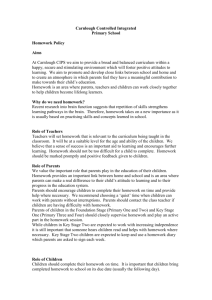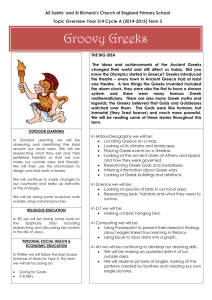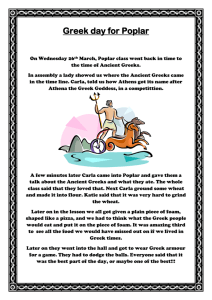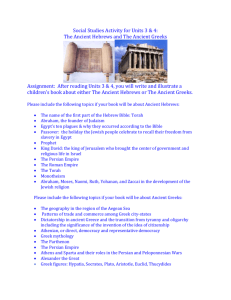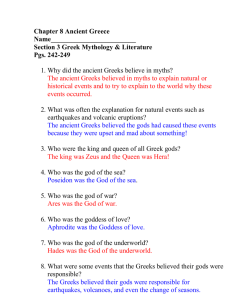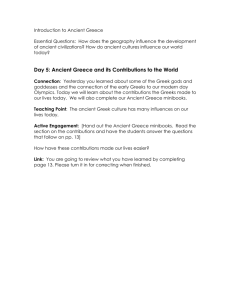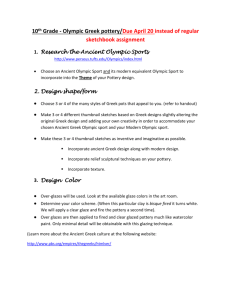Ancient Greeks - Homework and spelling 221.03 kb
advertisement
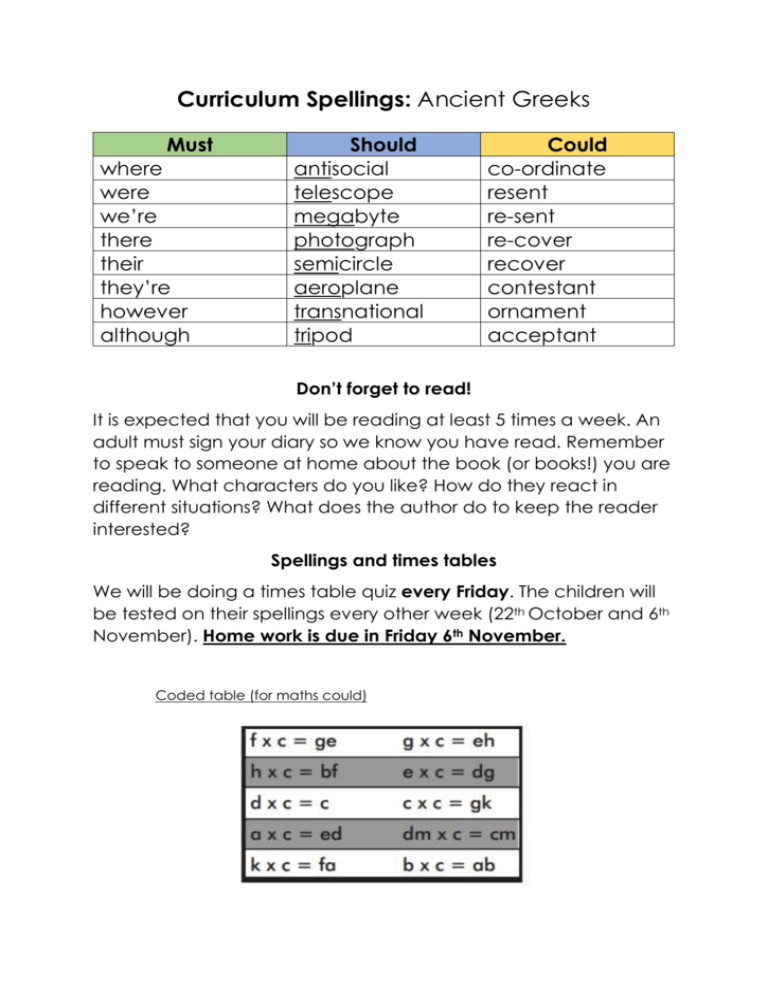
Curriculum Spellings: Ancient Greeks Must where were we’re there their they’re however although Should antisocial telescope megabyte photograph semicircle aeroplane transnational tripod Could co-ordinate resent re-sent re-cover recover contestant ornament acceptant Don’t forget to read! It is expected that you will be reading at least 5 times a week. An adult must sign your diary so we know you have read. Remember to speak to someone at home about the book (or books!) you are reading. What characters do you like? How do they react in different situations? What does the author do to keep the reader interested? Spellings and times tables We will be doing a times table quiz every Friday. The children will be tested on their spellings every other week (22th October and 6th November). Home work is due in Friday 6th November. Coded table (for maths could) Curriculum Homework: Ancient Greeks Must English Write how to defeat a Greek mythical creature. Try to include the following: Equipment list, time connectives, powerful imperative verbs (orders), adverbs e.g. slowly, carefully, frantically. Maths What are the common multiples of 2 and 3? What is the lowest common multiple of 2 and 3? (the lowest number that 2 and 3 go into) Find the common multiple of 3 and 4? What is the lowest common multiple? Repeat for 3 more pairs of numbers. Topic Find the names of three Greek inventors. Research what they did and present your work as a poster. Physical, Creative or Family Should Look at the should spellings. Each prefix has a meaning. Find out the meaning and find other words which start with the same prefix. Could Research what schools were like in Ancient Greece then write a diary entry as a child in Athens. What do you notice about the meaning of the words with the same prefix? Angle hunt! Find objects around your houses and sketch or take a photo of them that have… 1) Acute angles (less than 90’) 2) Right angles (90’) 3) Obtuse angles (more than 90’, less than 180’) 4) Reflex angles (more than 180’) Research the Ancient Olympics: Why did the Greeks hold the Olympic Games? What events took place in the Olympic Games and who took part? What are the main similarities and differences between the Olympic Games then and now? The myths and legends of ancient Greece include various strange creatures and monsters partly based on real animals that existed. Invent your own monster – this can be a picture, made out of junk materials, clay, card or collage. Get creative! Look at the coded table (below ‘spellings and times table’). Can you work out the code? Write another table using the same code Top tip… Look for the only two digit ‘number’ start by working out what this would be.... Create a Greek menu for a dinner party. You may even like to prepare some Greek food for us all to try! Learn the ‘sun salutation’ series of stretches we do in PE (look online) so that you can help lead the warm up in PE.



